Being global citizens of the planet earth, let us join hand in hand to work individually and collectively to fight for global climate change issues. We must act today instead of thinking to do it tomorrow.” — Ikram Ur Rahman
Dr. Ikram Ur Rahman has over 27 years of experience working for several different international organizations, where his focus has always been nature preservation.
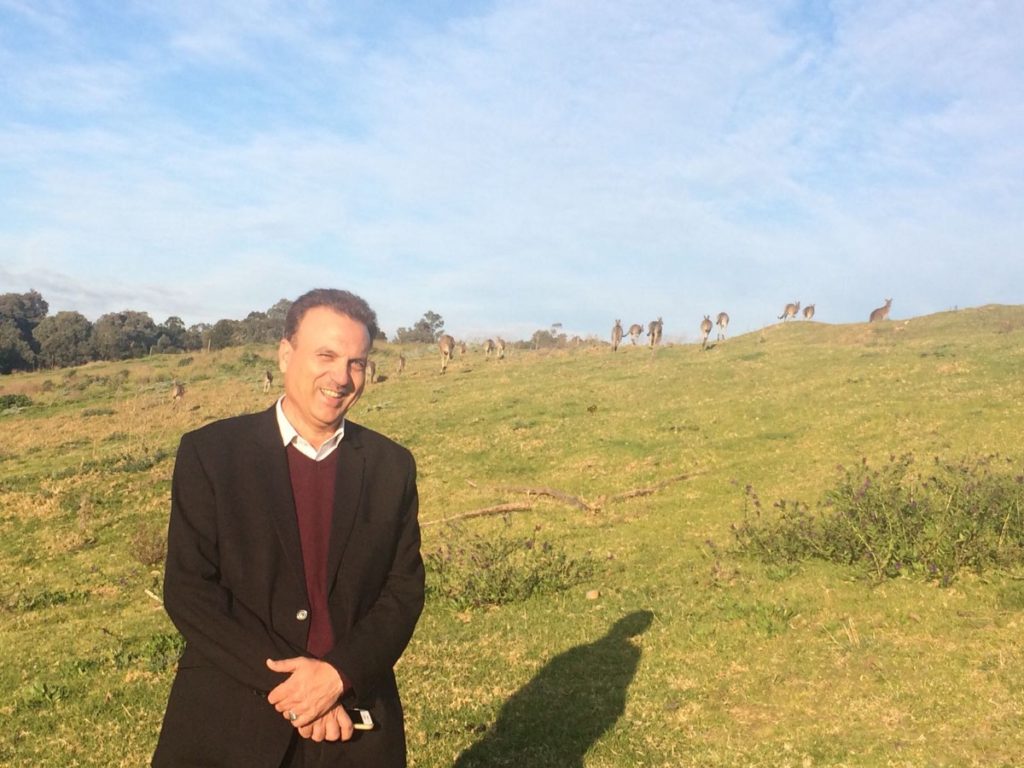
Dr. Ikram Ur Rahman visited the Kangaroos Garden in Melbourne Australia to observe forest conservation and wild life protection (July 2017)./©Ikram Ur Rahman
He is currently serving as a Regional Project Coordinator in the Mountains and Markets Project in the Northern Province of Pakistan, funded by the United Nations Development Programme (UNDP) and the Global Environmental Facility (GEF). The goal of this project is to use the voluntary certification of non-timber forest products (NTFP) to promote conservation and to help create a market, which benefits existing conservation efforts.
This project provides local stakeholders, who were earning their livelihood with timber products, with the opportunity to become long-term guardians of natural resources, such as medicinal and aromatic plants (MAP).
The global trade value of MAPs is estimated at around 60 billion USD and is expected to grow to 5 trillion USD by 2050, a huge potential market for rural Pakistani communities, considering that the MAP’s value per weight is one of the highest amongst traded plants in Pakistan.
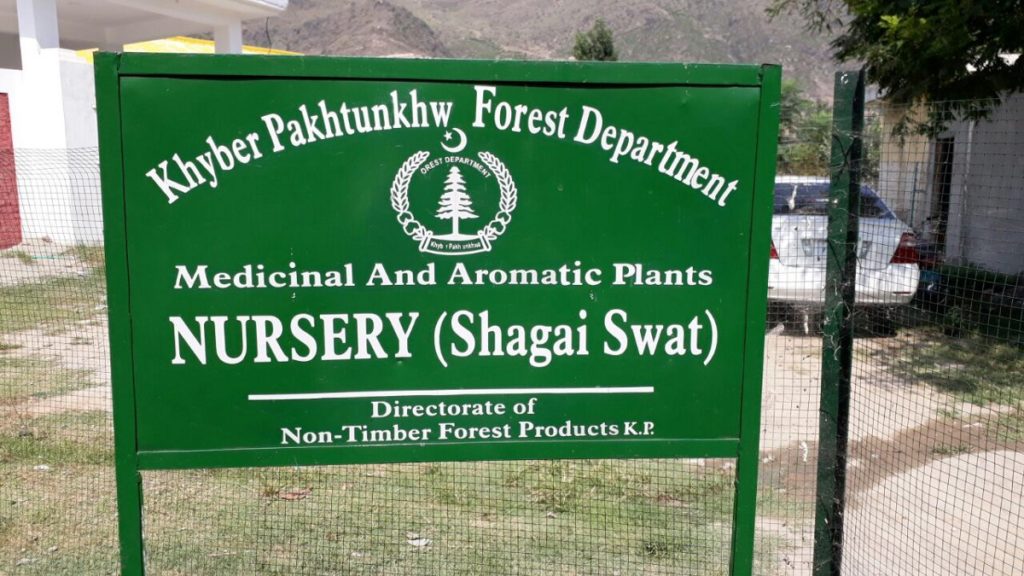
NTFPs Development Nursery for growing and transplanting high value MAP in respective habitats./©Ikram Ur Rahman
For this reason, Dr. Rahman is using his expertise in preserving wild origin organic products to support capacity building in rural Pakistani communities. He is training his community in the sustainable collection, post-collection processing, value addition, product development as well as the necessary marketing of NTFPs such as MAPs.
By informing rural communities on the natural and monetary value of resource management and sustainable land use, he is helping the local community to learn about alternative ways of increasing their economic growth, as well as creating awareness about the consequences of tree cutting and timber selling.
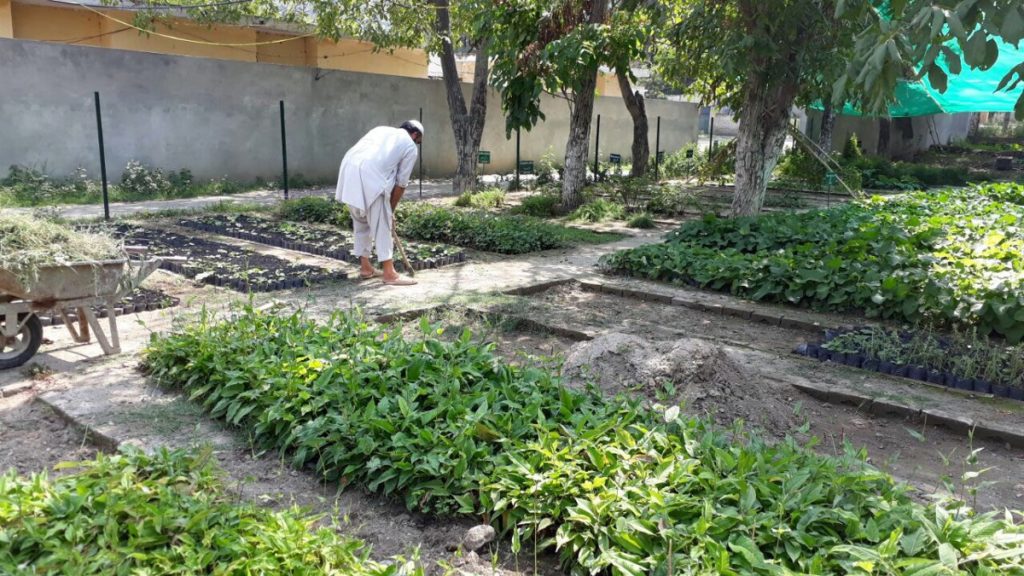
Maintaining high-value MAP nursery in collaboration with NTFPs Directorate of Forest Department KP./©Ikram Ur Rahman
In 2015, Dr. Rahman was at COP21 in Paris. He learned about the Reducing Emissions from Deforestation and Forest Degradation programme (REDD), which aims at reducing GHG emissions by introducing sustainable forest management in developing countries. Soon after, he observed many REDD related approaches dealing with the mitigation of climate change such as the conservation of existing resources and the enhancement of carbon stock through forestation and afforestation.
He integrated these new concepts into the technical training that he was delivering to the rural Pakistani communities. As he began to gain new knowledge on these topics, he started to do a UN CC:e-Learn course. Specifically, he enrolled in the REDD+ Academy e-Course, which enhanced his knowledge on setting reference levels, monitoring, and stakeholder engagement in forest preservation.
According to Dr. Rahman, these e-courses helped him tremendously in training the rural communities.
I was able to raise awareness in the approach of nature conservation” – he said.
He integrated information related to sustainable forest management and conservation issues into the presentation materials, which provided practicable information for people living in the rural Northern Pakistani areas.
By taking UN CC:e-Learn courses, I was able to grant communities, that committed to NTFP harvests, the access to national and international markets with their products” – he added.
The knowledge transmitted by the UN CC:e-Learn courses constitutes a key economic opportunity for the Northern Pakistani community considering the value of the total MAP market and demonstrates the impact that these courses might have on developing countries’ communities.
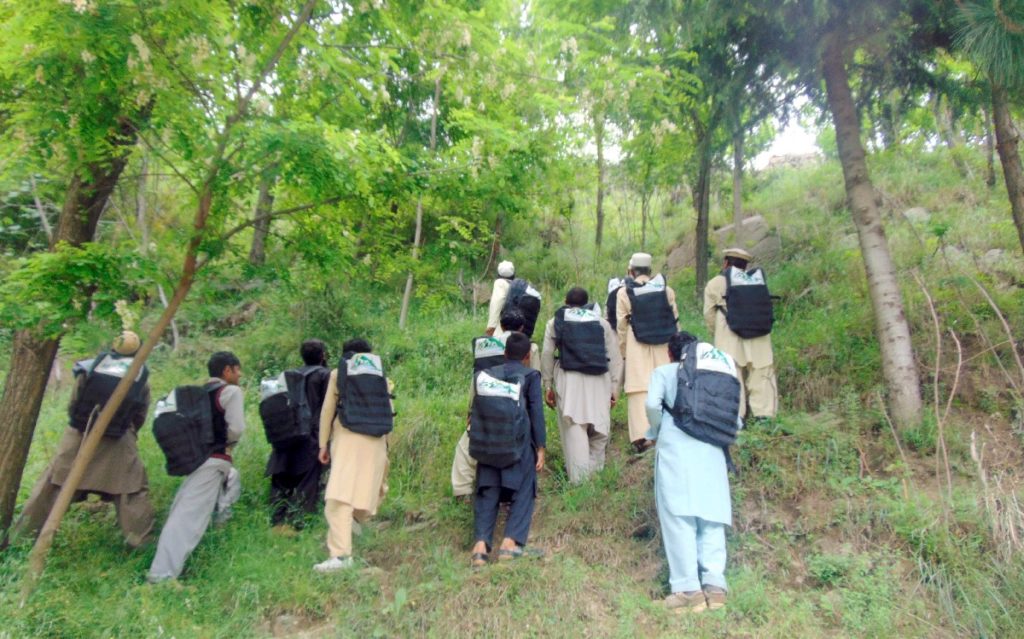
MAP collectors granted with safe collection tool kits after their training on the sustainable collection of MAP./©Ikram Ur Rahman
Furthermore, Dr. Rahman, currently working under UNDP Pakistan, was rewarded for taking part in this course. After presenting his UN CC:e-Learn certificate to his UNDP supervisor — he was granted a raise, based on the fact that his newly acquired know-how can be used to boost economic benefits for his community by integrating newly learned approaches of nature preservation and resource management. This in turn shows that employers appreciate it when their employees seek ways for continuing learning.
Although Dr. Rahman has come a long way, he still aims to do more. He would like to take a more inclusive approach in his undertakings. This would mean involving women in sustainable resource projects. He also sees a need for educating schoolchildren and students about the importance of nature conservation in order to teach responsible conduct with the environment from an early age on. These two tasks can be supported by taking UN CC:e-Learn courses, namely the Children and Climate Change and an upcoming course on Gender Equality, Women’s Empowerment, and the Environment, both courses provide the opportunity to support Dr. Rahman and his community in their ambitions.
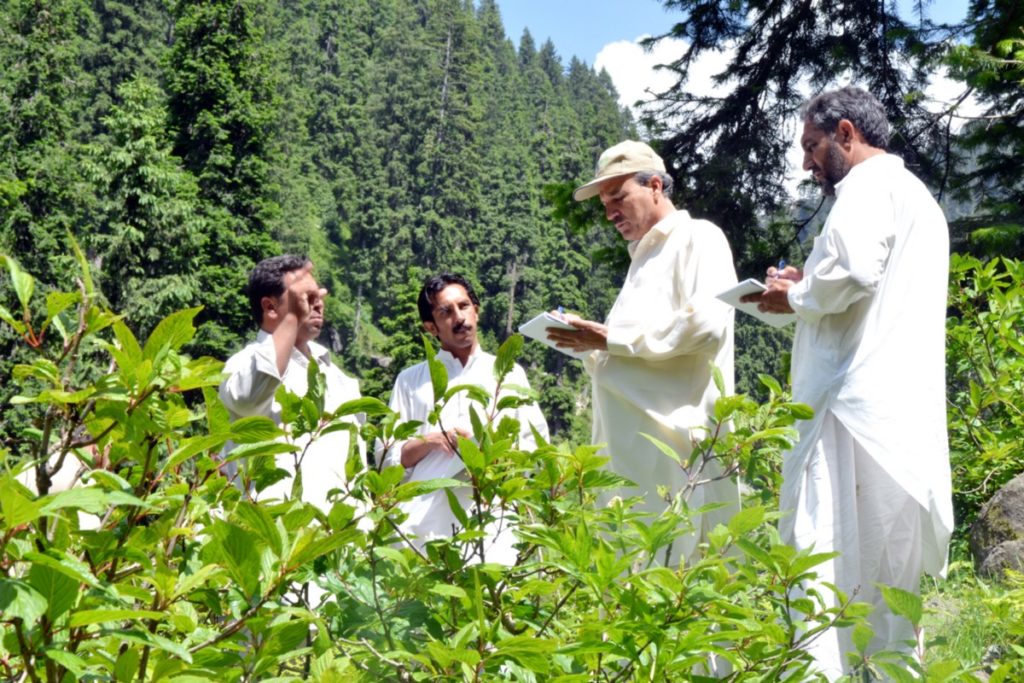
Surveying NTFP status to allocate sustainable harvest quota for different species and declare species for enhanced conservation./©Ikram Ur Rahman
Dr. Rahman did not only gain in terms of monetary increments, but he also passed on the knowledge he acquired through UN CC:e-Learn courses to his community. In turn, people are now able to sell their products on the international market. These products provide a steady income to the poor rural communities of Northern Pakistan, and the change in resource use within the community is helping to decrease deforestation and upholding the rich biodiversity in the region.
*Dr. Rahman is currently acting as a Regional Program Coordinator in the Sustainable Land Management Project (SLMP-II) in Khyberpukhtunkhwa Province of Pakistan. The story is of 2017 when he was serving in the Mountains & Markets Project as Regional Project Coordinator. Local Communities, UNDP Pakistan, GEF, Ministry of Climate Change and provincial line departments/institutions work together as the key stakeholders in these Projects.
